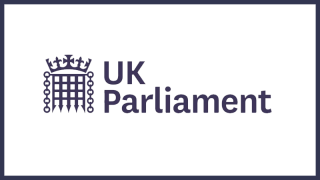Enforcing human rights: a step in the right direction

On 19 July 2018, the Joint Committee of Human Rights, appointed by the House of Lords and House of Commons, issued a report entitled Enforcing human rights. The report highlighted the Joint Committee’s concern that there is a significant disconnect between what the law says and how it is being applied, leaving entire segments of the population feeling like they cannot access justice.
The former President of the Supreme Court, Lord Neuberger, is quoted in the second paragraph of the report as saying: “we have pretty good rights but quite a yawning gap as far as enabling people to enforce those rights is concerned.” Christian Concern’s submission to the Committee is referenced in the following sentence noting that “evidence reflected a widespread feeling of exclusion from the system of protections and rights afforded to others in society.”
Christian Concern’s submission focused on the growing intolerance, hostility and discrimination being shown towards Christians in modern Britain and the lack of available remedies within our courts. It is not for a lack of legal protections that Christian freedoms are not being protected. In fact, those protections are very robust. The reality is that Christian freedoms are not being protected by our courts, not because they do not exist, but because our courts are blind to them. The courts have argued, for example, that the cross is not a Christian symbol,or that the belief that children do best with a mother and father within the confines of marriage is not a defensible or Christian opinion. Precisely stated, the problem is not that we do not have enough laws protecting Christian freedoms; it is that our courts have been obstinate in refusing to recognise these freedoms. If we are to truly live out our protected Christian freedoms without fear of legal punishment, much has to be done within our domestic tribunals in order to reform their treatment of Christian rights.
The committee noted that it had received submissions, citing among them Christian Concern’s submission, indicating that some rights are not given sufficient weight compared to others, which could undermine confidence in the human rights framework. It then highlighted freedom of religious exercise as among these rights.
We hope that the report represents a watershed moment in Parliament whereby this gap between the existence of rights which defend Christian freedoms and their actual enforcement is corrected.
However, this gap illustrates a key weakness of human rights frameworks. When these rights come into conflict with one another and must be balanced, human rights become human aspirations and some rights end up trumping others.
This leads to the so-called ‘hierarchy of rights’, in which law, as it is practised, does not reflect the natural or God-given rights of people to various freedoms, but reflects the ever-changing morals of cultural elites. Because of the clashes between human rights, judges are not able to merely apply law – they interpret it in line with their own moral values.
The committee’s report is helpful, as far as it goes, but should prompt further thought about the inherent weaknesses of human rights law. One good place to start would be Edmund Burke’s Battle with Liberalism by Samuel Burgess (Wilberforce Publications).
Links
Read Edmund Burke’s Battle with Liberalism by Samuel Burgess
Get our latest articles and alerts straight to your inbox:
